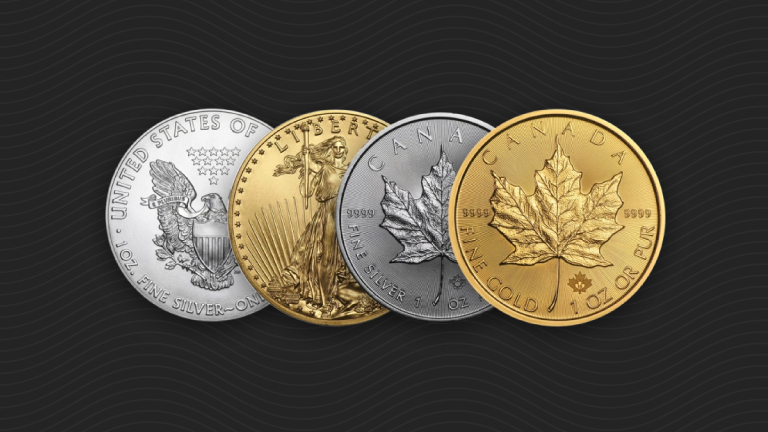“Money Is Gold, and Nothing Else”
By Dickson Buchanan
The Setting: The Bank and Currency Committee, Washington, DC, 1912.
In the Panic of 1907, the stock market fell over 50% in one day and caused massive bank runs. Bailouts had done little to restore confidence. Five years later, all this still lingered palpably in the minds of the crowd packed into the courthouse to listen to the testimony of one of the most powerful men in all of American history. By some considered a hero; by others, a criminal.
His Name: John Pierpont Morgan.
Congress called Morgan to testify because he was suspected of owning a “money trust,” which had purportedly gained control of a vast majority of the country’s finances. This is not surprising, considering that it was principally J.P. Morgan who had bailed the country out of the 1907 crash. The congressionally appointed attorney, Samuel Untermyer, approached the witness stand, and the following memorable exchange took place:
Untermyer: I want to ask you a few questions bearing on the subject that you have touched upon this morning, as to the control of money. The control of credit involves a control of money, does it not?
Morgan: A control of credit? No.
Untermyer: But the basis of banking is credit, is it not?
Morgan: Not always. That is an evidence of banking, but it is not the money itself. Money is gold, and nothing else.
This testimony has lived on as long as Morgan’s banking legacy. While no actual crime was determined, the results of the hearing led to the creation of the Federal Reserve System the very next year.
Allegations aside, Morgan’s testimony reveals a sound understanding of the economics of money and banking credit. Moreover, his conviction that nothing but gold is money stands out.
Why Is Gold Money?
What convinced J.P. Morgan that gold and nothing else could be money?
First, gold has been considered money for millennia, which was widely understood in Morgan’s time. There are several reasons why gold became money, but for brevity’s sake we can say that gold became money because money is always the most marketable good. Marketability refers to how readily people will accept something in trade.
The second reason J.P. Morgan believed that gold alone is money is more subtle. It hinges upon a key distinction between money and credit – namely, that money is that which extinguishes credit contracts. Here is another enlightening section of Morgan’s testimony:
Untermyer: Is there any country in the world of which the outstanding obligations passing as money are supported dollar-for-dollar by gold?
Morgan: It comes nearer to it in England than anywhere else.
Untermyer: Does it come nearer to it here than in England?
Morgan: No, because you have got your greenbacks.
Untermyer: At any rate, it is largely credit there as it is everywhere, is it not?
Morgan: Yes.
In his testimony, Morgan clearly distinguishes between what is money and what is credit. And only gold is money.
Fast forward to America today, living under the regime of the US dollar. The dollar has a history riddled with expansionist monetary policy. Economist Ludwig Von Mises documented that the US, along with the entire world, moved from commodity money (ounces of gold and silver) to credit money (paper notes redeemable in gold and silver) to fiat money (irredeemable paper notes which the state declares to be legally sanctioned payment for all transactions). At one time, dollars were still redeemable by anyone for ounces of gold. At a later time, they were only redeemable by foreign governments in large 400oz bullion bars. Now, since 1971, by government decree, dollars are not redeemable in anything at all.
This is significant because we now live in a dollar-denominated credit loop where all credit is denominated in dollars (the legally mandated money) and is also paid by dollars. In a way, dollars are still acting as the credit money they once were, except their claim or convertibility into gold has been severed. Today we pay our debts with credit claims that no longer are redeemable in what they used to be a claim upon!
Let that sink in for a moment.
The Character of Credit
In his famous testimony, J.P. Morgan maintained that character is the principal driver behind all credit. A man can have no money, but if he has a strong, upstanding character, a lender might trust him with credit. Today, the extent to which we trust the character of a debtor is defined as “creditworthiness.”
This raises the question: what is the character that stands behind the dollar?
It is not redeemable in anything. It is the instrument of an ever-increasing web of outstanding debt obligations with neither the means nor the intent to repay. It has bought less-and-less year-over-year, despite years of innovation and technology contributing to cheaper goods. By the Austrian economic standard, it is quite simply a terrible money. That is why J.P. Morgan never considered paper dollars money in the first place. And if Morgan knew anything, he knew money.
Dickson Buchanan is a Precious Metals Specialist at Euro Pacific Precious Metals. He received his MA in Austrian Economics from King Juan Carlos University in Madrid, Spain, and is currently enrolled in the doctorate program. Dickson joined the Euro Pacific Precious Metals team in 2012 after returning from his economic studies abroad.
Follow us on Twitter to stay up-to-date on Peter Schiff’s latest thoughts: @SchiffGold
Interested in learning about the best ways to buy gold and silver?
Call 1-888-GOLD-160 and speak with a Precious Metals Specialist today!

